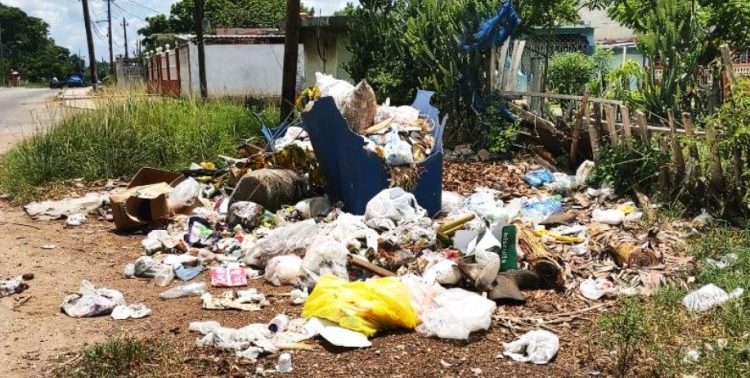MADRID, Spain.- In a clear reflection of the inability of the Havana government to manage the growing crisis of accumulation of garbagethe authorities of the Cuban capital have chosen to hire a private company to take charge of cleaning in several critical areas of the city.
This week, the alliance between the Cerro Municipal Administration Council and the micro, small and medium-sized enterprise (MSME) Talleres Delis was announced. This private companyfounded by Delis Antonio Espinosa Hernández and originally dedicated to the maintenance and repair of motor vehicles, has been hired to improve the condition of the equipment used in the collection of solid waste in the municipality. According to official reports, its intervention will focus on the main avenues of the territory, trying to alleviate the alarming situation that is experienced in almost the entire city.
Johanna Despaigne, deputy mayor for social programs in the Cerro municipality, accurate The garbage collection brigades will work from 6:00 pm, covering important stretches such as Calzada de Boyeros to Monte and Ayestarán, in an experimental attempt that will last a month. During this time, the results will be evaluated. Additionally, additional measures have been implemented, such as the placement of inspectors to apply Resolution 87, which sanctions those who deposit waste outside the established hours.
The accumulation of garbage in Havana has reached worrying levels, with mountains of waste that not only damage the image of the capital, but also represent a serious problem. risk to public health.
During the regular meeting of the Temporary Working Group (TWG) of October last year Cuban authorities have said that garbage collection in Havana “is the main challenge facing the city.”
In April 2024, the Cuban Observatory of Citizen Audit (OCAC) reported that the critical situation of garbage collection on the Island, with Havana as its epicenter, highlights the health insecurity that the country is experiencing.
Published by the think tank Cuba Siglo 21, the report Havana: capital of waste He explained that more than 7,600 cubic meters (m3) of garbage accumulate daily in spaces in the city public close to the homes and centres that generated them, which is equivalent to just over three Olympic swimming pools of rubbish per day.
In the Cuban capital, on average, only 68% is collected while the rest remains on the streets, generating sources of infection and urban fires due to the production of methane gas.
In the 15 municipalities of Havana, the OCAC carried out a field study to verify the dimension of the crisis in the collection of waste. The results were recorded in the report, along with almost 100 illustrative photos and a interactive map.
Only 40% of the garbage in the capital is recovered for recycling, the publication points out, while the rest of the uncollected waste attracts rodents, mosquitoes and other insects, carriers of diseases such as dengue and leptospirosis, which are very dangerous for health.
In the document, the OCAC stated: “the Government inability to create efficient and sustainable mechanisms, coupled with ineffective management of foreign investment opportunities and donations received, are some of the causes of the current situation.”
















